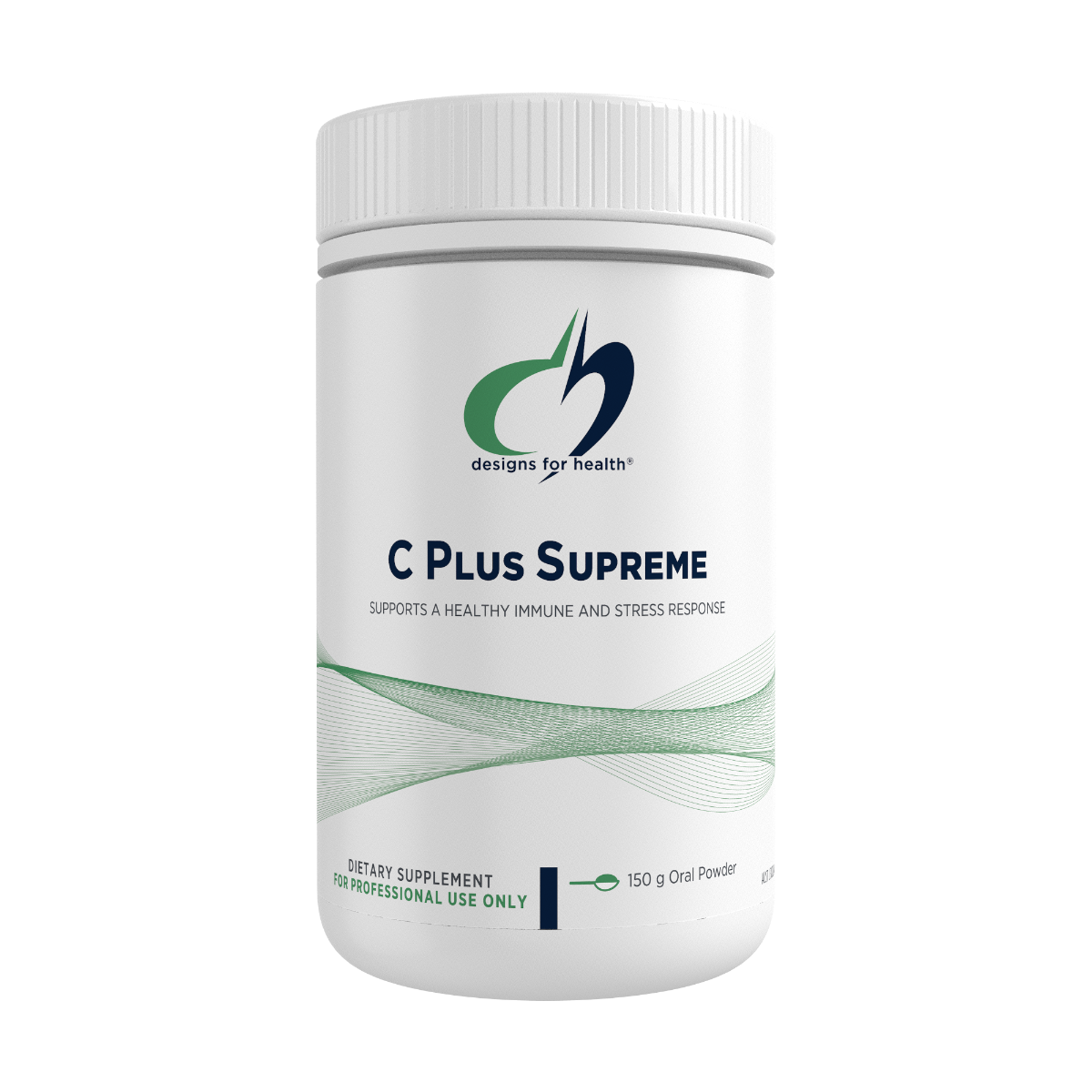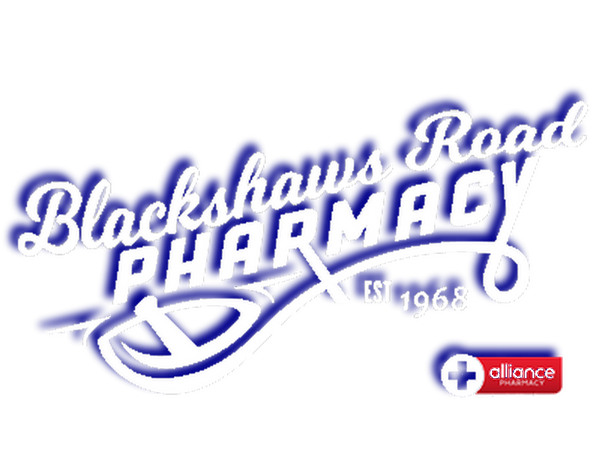Blackshaws Road Pharmacy
Designs For Health C Plus Supreme
Designs For Health C Plus Supreme
Couldn't load pickup availability
Designs For Health C Plus Supreme
Supports a healthy immune and stress response
Size: 150g Powder Servings: 30 Serves
Designs For Health C Plus Supreme Summary:
- Contains 5 different sources of Vitamin C
- Delivering 2g of ascorbic acid per serve
- Features PureWay-C, a clinically studied form of vitamin C with exceptional absorption and bioavailability
- Includes a comprehensive range of supporting antioxidant ingredients
- Includes hesperidin, rutoside, bioflavonoids, quercetin and annatto tocotrienols
- Supporting a healthy immune system function
- Maintains skin health
- Supports a healthy stress response
- Vegan Friendly
Designs For Health C Plus Supreme Has No added: gluten, dairy, lactose, soy or nuts.
Designs For Health C Plus Supreme AUST L 380294
Directions
Directions: Designs For Health C Plus Supreme
Adults: take 5 g (1 level teaspoon) mixed with 200 mL water daily or as directed by your healthcare professional.
Ingredients
Ingredients: Designs For Health C Plus Supreme
| Active Ingredients per 5 gm dose | |
| Ascorbic acid (PureWay-C) | 1.25g |
| Calcium ascorbate dihydrate | 680.85mg |
| Equivalent ascorbic acid | 562.5mg |
| Magnesium ascorbate monohydrate | 139.3mg |
| Equivalent ascorbic acid | 125mg |
| Ascorbyl palmitate | 100mg |
| Equivalent ascorbic acid | 42.5mg |
| Phyllanthus emblica ext dry conc. | 125mg |
| From dry fruit | 6.25g |
| Equivalent ascorbic acid | 62.5mg |
| Total Ascorbic Acid | 2.043g |
| Bixa orellana ext dry conc. | 166.65mg |
| From dry seed | 55.5g |
| Equivalent total tocotrienols | 50mg |
| Hesperidin | 100mg |
| Rutoside | 100mg |
| Citrus bioflavonoids extract | 50mg |
| Quercetin dihydrate | 25mg |
Excipients
Excipients: Designs For Health C Plus Supreme
Ammonium glycyrrhizinate, Modified food starch, Citric acid, Maltodextrin, Colloidal anhydrous silica, Stevia rebaudiana, Hypromellose, Thaumatin, Silicon dioxide, Sodium bicarbonate, Tartaric acid, Natural orange flavour
Allergen Information
Allergen Information: Designs For Health C Plus Supreme
No added: Gluten, Dairy, Soy, Yeast, Nuts, Eggs, Seeds.
Free From: Benzoates, Sorabtes, Artificial colours or flavours
Contains: Sulfites
Vegan Friendly
Warnings
Warnings: Designs For Health C Plus Supreme
Warnings:
If symptoms persist, talk to your health professional.
Vitamin supplements should not replace a balanced diet.
Prescribing Information:
Caution is advised regarding use of vitamin C in individuals with iron overload sensitivities including erythrocyte glucose-6-phosphate dehydrogenase deficiency, haemochromatosis, thalassaemia major or sideroblastic anaemia.
Education
Education: Designs For Health C Plus Supreme
Endogenous roles of vitamin C
Vitamin C, a nomenclature that encompasses both ascorbic acid and its oxidised form dehydroascorbic acid, is an essential water-soluble vitamin that the body requires from exogenous sources due to its low endogenous storage capacity and inability to enzymatically synthesise it (because of the absence of L-gulonolactone oxidase enzyme).

Figure 1: Linus Pauling Institute: Vitamin C and dehydroascorbic acid chemical structures.
While vitamin C is widely available in many fruits and vegetables, inadequate levels (ranging from serum levels <11.4μmol/L [severe deficiency], <23 μmol/L [marginal deficiency] to <40-50 μmol/L [suboptimal]) are relatively prevalent across the average Western population, with vitamin C being the fourth most common nutrient deficiency in the United States.
Risk factors associated with inadequate and deficient levels include suboptimal nutrient (macro- and/or micronutrients) dietary intake patterns, gastrointestinal conditions, older age, smoking, alcohol, environmental pollution, significant physical or psychological stress, medication use (aspirin, indomethacin, oral contraceptive pill, tetracyclines, corticosteroids) and the presence of genetic polymorphisms
Such factors influence the complex endogenous pharmacokinetics of vitamin C, with absorption, transport, metabolism and elimination regulated by intestinal absorption, tissue concentrations and renal reabsorption.3,5 Depending on the presence of risk factors associated with inadequate endogenous vitamin C concentrations, following oral intake plasma levels increase until reaching repletion/saturation levels (60-80 μmol/L).
In addition to the broad range of common risk factors associated with suboptimal or deficient levels, the involvement of vitamin C in over 150 metabolic processes emphasises the importance of maintaining optimal levels to support normal antioxidant, immune, cardiovascular, connective tissue, adrenal and functional health in the body
Antioxidant
The body is continually exposed to free radicals from those generated by endogenous metabolic processes and exogenous environmental sources, and optimal vitamin C levels are required to ameliorate the impact of oxidative damage on body cells and tissues (proteins, lipids, carbohydrates, and nucleic acids) via both direct and indirect mechanisms.
Direct mechanisms include donating electrons and neutralising reactive oxygen and nitrogen species, while indirect mechanisms include mitigating the impact of hydrogen peroxide, regenerating endogenous vitamin E and supporting antioxidant enzyme system function. Vitamin C’s antioxidant mechanisms also underlie its effect on other body systems and tissues.
Immune
Vitamin C helps the immune system to maintain homeostasis and generate appropriate responses when exposed to infectious pathogens via multiple mechanisms (see table 1).
Table 1: Vitamin C immune system mechanisms5
| IMMUNE COMPONENT | MECHANISM |
| Epithelial barriers |
|
| Phagocytes (neutrophils, macrophages) |
|
| B and T-lymphocytes |
|
| Inflammatory mediators | • Modulates cytokine synthesis. • Influences histamine levels. |
Cardiovascular
Vitamin C’s antioxidant mechanisms support cardiovascular system health by inhibiting low-density lipoprotein oxidation, supporting healthy endothelial function and homocysteine and inducible nitric oxide synthase metabolism.
Adrenal and nervous system
Stress, both physical and psychological, is a normal part of life and the body responds to stress with cascade of complex and coordinated sympathetic nervous and hypothalamic-pituitaryadrenal system processes.
Optimal levels of vitamin C are required to support this stress response via its involvement in mitochondrial energy synthesis, adrenal glucocorticoid and catecholamine synthesis (promoting a healthy cortisol response) and antioxidant effects/mechanisms ameliorating the central nervous system's particular sensitivity to oxidative stress.
Connective tissue
Vitamin C is integral for the maintenance of normal connective tissue, bone and joint health as a consequence of its role in collagen synthesis and stabilisation (as a lysyl and prolyl hydroxylase cofactor), bone matrix formation and repair (promotes osteoblast differentiation, modulates chondrocyte gene expression) and antioxidant activity (reducing bone resorption).
PureWay-C
PureWay-C is a clinically studied form of vitamin C comprised of a lipid-vitamin C complex that has demonstrated excellent absorption and bioavailability. Clinical studies involving healthy human subjects have shown that the proprietary fatty acid formulation allows vitamin C to rapidly enter the cells by acting as a carrier to facilitate intestinal absorption, cellular uptake and tissue distribution without effects commonly associated with concentrated doses of vitamin C.

Share


